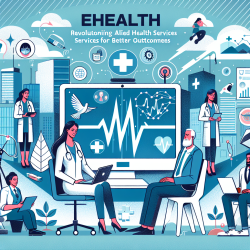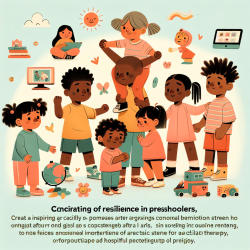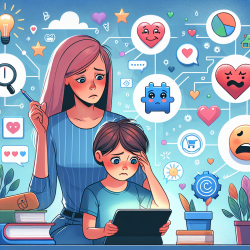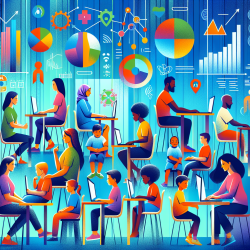Introduction
The COVID-19 pandemic has brought global health diplomacy (GHD) to the forefront, highlighting its critical role in navigating the intersection of trade and health. As practitioners in the field of special education and therapy, understanding and leveraging the principles of GHD can significantly enhance our ability to advocate for equitable health outcomes and resources. This blog explores key insights from the research article "Global health diplomacy at the intersection of trade and health in the COVID-19 era" and offers practical steps for practitioners to improve their skills and engage in further research.
Understanding Global Health Diplomacy
Global health diplomacy involves negotiations and collaborations across multiple sectors and levels to promote health outcomes on a global scale. The COVID-19 pandemic has underscored the need for effective GHD, as countries strive to balance economic interests with public health imperatives. The research highlights the importance of building capacity in GHD to ensure that health personnel can effectively negotiate on the international stage, securing the resources necessary for improved health outcomes.
Key Takeaways for Practitioners
- Capacity Building: Develop skills in both health and non-health sectors to understand the impact of policies across domains. This holistic understanding can enhance negotiation strategies and outcomes.
- Collaboration: Foster interactions between related agencies and build informal networks to facilitate trust and collaboration. This approach can lead to more effective advocacy and resource allocation.
- Advocacy for Equity: Engage in initiatives that prioritize health over profits, such as supporting proposals for waivers on intellectual property rights related to COVID-19 treatments and vaccines.
Implementing GHD in Practice
Practitioners can apply GHD principles by advocating for policies that integrate health considerations into trade agreements. For example, supporting taxation on unhealthy foods and beverages can promote healthier lifestyles and reduce the burden of non-communicable diseases. Additionally, engaging with civil society organizations and participating in international forums can amplify the voice of health professionals in shaping global policies.
Encouraging Further Research
While this blog provides an overview of GHD's potential impact, practitioners are encouraged to delve deeper into the topic. Exploring case studies, such as Thailand's capacity-building efforts in GHD, can offer valuable insights into successful strategies and challenges. By staying informed and engaged, practitioners can contribute to a more equitable and health-focused global landscape.
Conclusion
Global health diplomacy is a powerful tool for advancing health outcomes in the face of complex global challenges. By building capacity, fostering collaboration, and advocating for equitable policies, practitioners can play a pivotal role in shaping a healthier future. For those interested in further exploring this topic, the original research paper provides a comprehensive analysis and is accessible through the following link: Global health diplomacy at the intersection of trade and health in the COVID-19 era.










